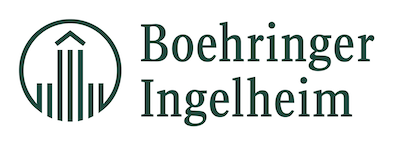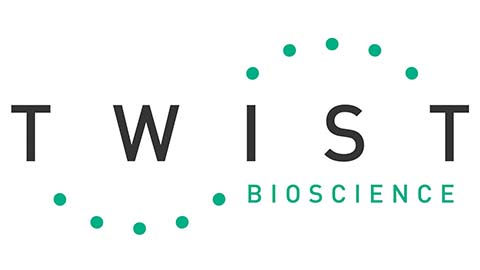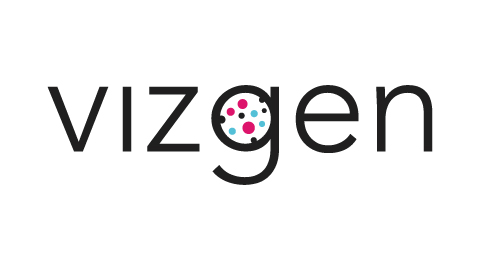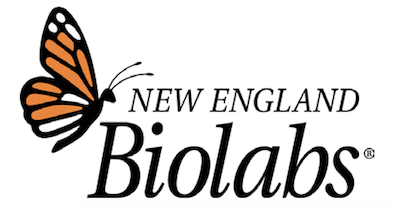
Deepa Agashe
National Centre for Biological Sciences
India
Course site: Bangalore
EMBO Practical Course
Metagenomics studies are rapidly uncovering the compositional richness of microbial communities in diverse habitats ranging from the oceans to the human gut. While their fundamental role in our health and environment is undeniable, there is an urgent need for unravelling molecular mechanisms underlying the dynamics of these communities. This requires a combined experimental and computational approach. Recent studies (including those from the organisers’ and speakers’ labs) have underlined the success of such integrative approaches. For example, emergence of cell subpopulations (Varahan et al. eLife 2019, 2020), and long-term stability (Blasche, Kim et al. Nat Microbiol. 2021) through metabolic cross-feeding.
As researchers world-wide map species dynamics in the ecosystems of their interest, this course will provide the necessary overview and tools for moving from cataloguing to identifying key interaction agents, especially metabolites. This will include integrating species and metabolite dynamics data, as well as leveraging the power of genome-scale metabolic models to predict community interactions.
This course is aimed at PhD students and post-doctoral researchers who would apply the methods covered in the course. Applicants are requested to send a motivation letter summarizing their current research and their need for the methods addressed in this course. Furthermore, there is a specific questionnaire to query the background and access to the relevant methods. We aim for a broad geographical distribution of participants to identify needs for applying the methods in different countries, this includes newer EU member states. To ensure optimal tutoring during the practicals, we
target for 20 participants (10 each site). The course will bring together participants from various disciplines (microbiology, metabolomics, modelling, ecology) and ensure a distribution on both sites.
The main goal of the course is to equip the participants with the state-of-the-art concepts in microbial ecosystems and introduce them to the key tools towards gaining mechanistic insights in community dynamics. The central learning objective is that the participants will be able to apply these concepts and tools in their own research. Further, we also aim at enabling scientific networking among the participants (including speakers and trainers) and foster dialogue between scientists from different areas (microbiology, metabolomics, modelling, ecology).

National Centre for Biological Sciences
India
Course site: Bangalore

University of Cambridge
UK
Course site: Bangalore

EMBL Heidelberg
Germany
Course site: Heidelberg

EMBL Heidelberg
Germany
Course site: Heidelberg

Indian Institute of Science Education and Research, Pune
India
Course site: Bangalore

University of Heidelberg
Germany
Course site: Heidelberg
EMBL Heidelberg
Germany

National Centre for Biological Sciences
India
Course site: Bangalore

Institute for Stem Cell Science and Regenerative Medicine
India
Course site: Bangalore

Norwegian University of Science and Technology
Norway
Course site: Remote

National Centre for Biological Sciences
India
Course site: Bangalore
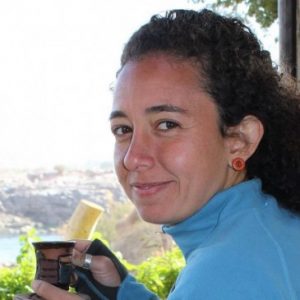
University of Lausanne
Switzerland
Course site: Heidelberg

EMBL Heidelberg
Germany
Course site: Heidelberg
Middlebury College
USA
Course site: Heidelberg

Boston University
USA
Course site: Remote

EMBL Heidelberg
Germany
Course site: Heidelberg

National Centre for Biological Sciences
India
Course site: Bangalore

EMBL Heidelber
Germany

Institute for Stem Cell Science and Regenerative Medicine
India
Course site: Bangalore

EMBL Heidelberg
Germany
Course site: Heidelberg
EMBL Heidelberg
Germany
Course site: Heidelberg

EMBL Heidelberg
Germany
Course site: Heidelberg

University of Cambridge
UK

National Centre for Biological Sciences
India
Course site: Bangalore

Institute for Stem Cell Science and Regenerative Medicine
India
Course site: Bangalore

University of Cambridge
UK
Course site: Bangalore

EMBL Heidelberg
Germany
Course site: Heidelberg

EMBL Heidelberg
Germany
Course site: Heidelberg

Training Lab Technician
EMBL Heidelberg
Germany
Course site: Heidelberg

Course and Conference Officer
EMBL Heidelberg
Germany
Course site: Heidelberg

Training Lab Technician
EMBL Heidelberg
Germany
Course site: Heidelberg
Got something to say? Tweet it with #EMBOMicroCom
| Time Europe/Berlin | Speaker | Time India/Bangalore |
| 10:00 – 10:30 | On-Boarding Day: Welcome and short introduction | 13:30 – 14:00 |
| 10:30 – 11:00 | Course overview on eCampus /introduction to pre-course work | 14:00 – 14:30 |
| 11:00 – 12:00 | Software test for pre-course work | 14:30 – 15:30 |
| Time Europe/Berlin | Speaker | Time India/Banglore |
| 11:30 | Heidelberg hub: – Shuttle from ISG Hotel to EMBL – Light lunch upon arrival at EMBL | |
| 12:00 | Heidelberg hub and Bangalore hub: registration and technical set-up | 15:30 |
| 12:30 – 12:45 | Welcome and house notes (shared via Zoom) at both sites – jointly. | 16:00 – 16:15 |
| 12:45 – 13:15 | Course overview (Introduction to format, expectations, timelines) | 16:15 – 16:45 |
| 13:15 – 14:45 | Flash Talks by participants, organisers, trainers, speakers (concurrent coffee break) | 16:45 – 18:15 |
| 14:45- 15:45 | Lecture: Evolution and ecology in synthetic microbial communities: Sara Mitri – University of Lausanne, Switzerland (This talk is remote) | 18:15- 19:15 |
| 15:45- 16:15 | Practical introduction lecture: Kefir experiments (experimental design and overview via zoom) | 19:15- 19:45 |
| 16:15 – 17:15 | Practical session 1: Kefir culture inoculation Heidelberg hub trainers: Matthias Gross, Denise Selegato – EMBL Heidelberg Emily Putnam – Middlebury College Bangalore trainers: Sreesa Sreedharan, Ganesh Muthu – Institute for Stem Cell Science and Regenerative Medicine | 19:45 – 20:15 |
| Bangalore hub: Dinner followed by networking | 20:15 – 22:45 | |
| 17:15 – 18:00 | Heidelberg hub: Challenges and Expectations followed by networking time | |
| 18:00 | Heidelberg hub: Bus from EMBL to the ISG Hotel | |
| 18:15 – 19:15 | Heidelberg hub: Dinner at the ISG Hotel followed by networking |
| Time Europe/Berlin | Speaker | Time India/Bangalore |
| Bangalore hub: Overview of the day | 09:15 – 9:30 | |
| Bangalore hub: Networking: Challenges and Expectations concurrent coffee break | 9:30 – 10:30 | |
| Bangalore hub: Practical session 1: Experimental design and kefir culture set-up and sampling Trainers: Sreesa Sreedharan and Ganesh Muthu – Institute for Stem Cell Science and Regenerative Medicine | 10:30 – 11:30 | |
| Bangalore hub: Practical session 4: Experimental design and kefir culture set-up and sampling Trainers: Ece Kartal – University of Heidelberg Sonja Blasche – University of Cambridge | 11:30 – 12:30 | |
| Bangalore hub: Lunch | 12:30 – 13:30 | |
| 08:40 | Heidelberg hub: Bus from ISG Hotel to EMBL | |
| 09:00 – 09:15 | Heidelberg hub: Overview of the day Matthias Gross and Denise Selegato – EMBL Heidelberg | |
| 09:15 – 10:00 | Heidelberg hub: Practical session 1: Experimental design and kefir culture set-up and sampling Trainers: Matthias Gross, Denise Selegato – EMBL Heidelberg Emily Putnam – Middlebury College | 13:30 |
| 10:00 – 11:00 | Lecture: Inter-species interactions in the insect gut Deepa Agashe – National Center For Biological Sciences, India | 13:30 – 14:30 |
| 11:00 – 11:15 | Coffee break | 14:30 – 14:45 |
| 11:15 – 12:15 | Lecture: Evolution of bacterial regulatory systems Aswin Seshasayee – National Center For Biological Sciences, India | 14:45 – 15:45 |
| 12:15 – 12:45 | Heidelberg Hub: Practical session 4: Prepare plating experiment: inoculate background plates Trainers: Matthias Gross – EMBL Heidelberg, Germany Emily Putnam – Middlebury College, USA | |
| 12:45 – 13:45 | Heidelberg Hub: Lunch | |
| Bangalore hub: Practical session 1 continued: Experimental design and kefir culture set-up and sampling Trainers: Sreesa Sreedharan and Ganesh Muthu – Institute for Stem Cell Science and Regenerative Medicine, India | 15:45 – 16:45 | |
| Bangalore hub: Practical session 4 continued: Experimental design and kefir culture set-up and sampling Trainers: Ece Kartal – University of Heidelberg, Germany Sonja Blasche – University of Cambridge, UK | 16:45 – 18:00 | |
| 13:45 – 14:30 | Heidelberg hub: Practical session 1 continued: Experimental design and kefir culture set-up and sampling Trainers: Matthias Gross, Denise Selegato – EMBL Heidelberg Emily Putnam – Middlebury College | |
| 14:30 – 15:15 | Coffee break and cross-site interaction via Zoom in small groups (grouped on topics, challenges from projects) | 18:00 |
| 15:15- 15:45 | Group work: the 4 cross-site teams will discuss their practicals | 18:45 – 19:15 |
| Bangalore hub dinner | 19:15 – 20:30 | |
| 15:45- 17:00 | Heidelberg Hub: Practical session 4 continued: Plating experiment: array species plate and pin (Sample T23) Trainers: Matthias Gross – EMBL Heidelberg Emily Putnam – Middlebury College With flexible coffee break during session | |
| 17:00 – 18:30 | Cross-site interaction via Zoom in small groups (grouped on topics, challenges from projects) | 20:30 – 22:00 |
| Bangalore hub – end of Day 2 | 22:00 | |
| 18:30 – 20:00 | Heidelberg hub – Tapas dinner | |
| 20:00 | Heidelberg hub: Bus from EMBL to the ISG Hotel End of Day 2 |
| Time Europe/Berlin | Speaker | Time India/Banglore |
| Bangalore hub: Overview of the day | 09:00-09:15 | |
| Bangalore hub: Practical session 2: DNA Extraction, Normalization, Quantification Trainers: Sonja Blasche – University of Cambridge, UK Ece Kartal – University of Heidelberg, Germany Rajalakshmi Srinivasan – INSTEM With flexible coffee break during session | 09:15 – 12:45 | |
| 08:40 | Heidelberg hub: Bus from ISG Hotel to EMBL | |
| 09:00 – 09:15 | Heidelberg hub: overview of the day | |
| 09:15 – 12:45 | Heidelberg hub: Practical session 2: DNA Extraction, Normalization, Quantification Trainers: Laura Villacorta, Daphne Welter, Matthias Gross – EMBL Heidelberg, Germany | |
| Bangalore hub: lunch | 12:45 – 14:15 | |
| Bangalore hub: 16S analysis Trainers: Sonja Blasche – University of Cambridge, UK Ece Kartal – University of Heidelberg, Germany Rajalakshmi Srinivasan – Institute for Stem Cell Science and Regenerative Medicine, India Sequencing facility led by Dr. Awadhesh Pandit Metabolomics (LC-MS) Trainers: Sreesa Sreedharan, Ganesh Muthu – Institute for Stem Cell Science and Regenerative Medicine, India | 14:15 – 15:45 | |
| Bangalore hub: Coffee break | 15:45 – 16:00 | |
| 12:45 – 13:30 | Heidelberg hub: Lunch break | |
| Bangalore hub: 16S analysis Trainers: Sonja Blasche – University of Cambridge, UK Ece Kartal – University of Heidelberg, Germany Rajalakshmi Srinivasan – Institute for Stem Cell Science and Regenerative Medicine, India Sequencing facility led by Dr. Awadhesh Pandit Metabolomics (LC-MS) Trainers: Sreesa Sreedharan, Ganesh Muthu – Institute for Stem Cell Science and Regenerative Medicine, India | 16:00 – 17:30 | |
| 13:30 – 14:30 | Heidelberg hub: Practical session 4 continued: Interaction mapping plating experiment (Image aquisition) Matthias Gross – EMBL Heidelberg, Germany, Emily Putnam – Middlebury College, USA With flexible coffee break during session | |
| 14:30 – 16:30 | Heidelberg hub: Practical sessions 2+3: 16S analysis + GeneCore tour Trainers: Laura Villacorta, EMBL Heidelberg, Daphne Welter, Jan Provaznik – EMBL Heidelberg, Germany Metabolomics (sample extraction, derivatization, GCMS injection) Trainers: Denise Selegato, Maria Zimmermann – EMBL Heidelberg, Germany | |
| 16:30 – 17:00 | Coffee break and cross-site interaction via Zoom in small groups / buffer time for experiments | 17:30 – 18:00 |
| 17:00 – 19:00 | Heidelberg hub Practical sessions 2+3: 16S analysis + GeneCore tour Trainers: Laura Villacorta, Daphne Welter, Jan Provaznik – EMBL Heidelberg, Germany Metabolomics (sample extraction, derivatization, GCMS injection) Trainers: Denise Selegato, Maria Zimmermann – EMBL Heidelberg, Germany | |
| Bangalore hub: dinner followed by networking and drinks End of Day 3 | 19:00 – 20:30 | |
| 19:00 – 20:00 | Heidelberg hub: vegetarian dinner followed by networking and drinks | |
| 20:00 | Heidelberg hub: Bus from EMBL to the ISG Hotel End of Day 3 |
| Time Europe/Berlin | Speaker | Time India/Banglore |
| Bangalore hub: Outing including hike | 07:00 – 12:00 | |
| Bangalore hub: Lunch | 12:00 – 13:00 | |
| 08:40 | Heidelberg hub: Bus from ISG Hotel to EMBL | |
| 09:15- 09:30 | Heidelberg hub: Overview of the day | |
| 09:30- 10:15 | Lecture: Metabolic networks and interactions in cell populations Sunil Laxman – Institute for Stem Cell Biology and Regenerative Medicine, India 30 minute talk following by 15 minute discussion | 13:00- 13:45 |
| 10:15- 11:00 | Lecture: Towards understanding microbial community dynamics: Developing model systems in food Emily Putnam – Middlebury College, USA Germany 30 minute talk following by 15 minute discussion | 13:45- 14:30 |
| 11:00- 11:30 | HD and BA connected via zoom and continued discussions | 14:30- 15:00 |
| 11:30- 13:00 | Lecture: Taxonomic profiling Speaker: Georg Zeller – EMBL Heidelberg, Germany Lecture: Metabolics data analysis Sunil Laxman – Institute for Stem Cell Biology and Regenerative Medicine, India | 15:00- 16:30 |
| 13:00- 14:00 | Heidelberg hub: Lunch | |
| Bangalore hub: Practical Session: Interaction mapping plating experiment (Image acquisition) Tutors: Sonja Blasche – University of Cambridge, UK Ece Kartal – University of Heidelberg, Germany Rajalakshmi Srinivasan – Institute for Stem Cell Biology and Regenerative Medicine, Indiai | 16:30 – 17:15 | |
| Bangalore hub: Coffee break | 17:15- 17:30 | |
| 14:00-15:30 | Computational Practical 6: 16S and metabolomics data analysis Main trainers: Sandeep Krishna – Simons Centre for the Study of Living Machines, India Maria Zimmerman – EMBL Heidelberg, Germany Bangalore trainers: Nitish Malhotra – National Center For Biological Sciences, India Akshara Dubey – National Center For Biological Sciences, India Heidelberg trainer: Eva-Maria Geissen, Nicolai Karcher, Fabian Springer – EMBL Heidelberg, Germany | 17:30- 19:00 |
| 15:30- 16:00 | Heidelberg hub: Coffee break | |
| Bangalore hub: Dinner followed by casual networking End of Day 4 | 17:30 – 19:00 | |
| 16:00 – 17:50 | Heidelberg hub: Computational Practical 6: 16S and metabolomics data analysis Trainers: Maria Zimmermann, Eva-Maria Geissen, Denise Selegato – EMBL Heidelberg, Germany | |
| 17:50 18:10 | Heidelberg hub: Bus to ISG Hotel (bus will stop for a couple of minutes and then continue back to EMBL) EMBL to downtown | |
| 18:30 – 19:30 | Heidelberg Old Town city tour | |
| 20:00 – 22:00 | Heidelberg downtown dinner and networking End of Day 4 |
| Time Europe/Berlin | Speaker | Time India/Bangalore |
| Bangalore hub: Overview of the day | 09:30- 9:45 | |
| Bangalore hub: Computational practical 6: 16S and metabolomics data analysis Trainers: Sandeep Krishna – Simons Centre for the Study of Living Machines, India Akshara Dubey – National Center For Biological Sciences, India | 09:45- 11:15 | |
| Bangalore hub: Treasure hunt | 11:15- 12:15 | |
| Bangalore hub: Lunch | 12:15- 13:00 | |
| 09:15 – 09:30 | Heidelberg hub: Overview of the day | |
| 09:30- 10:15 | Lecture: Chemical biology of microbes Amrita Hazra – Indian Institute of Science Education and Research, Pune 30 minute talk following by 15 minute discussion | 13:00- 13:45 |
| 10:15- 11:00 | Lecture: Modelling microbial community interactions Daniel Machado – Norwegian University of Science and Technology, Norway (This talk is remote) 30 minute talk following by 15 minute discussion | 13:45- 14:30 |
| 11:00- 11:30 | Cross-site interaction via Zoom and continued discussions | 14:30- 15:00 |
| 11:30- 13:00 | Computational Practical 7: Metabolic modelling of community interactions Main trainers: Daniel Machado – Norwegian University of Science and Technology, Norway Kiran Patill – Universtiy of Cambridge, UK Eva-Maria Geissen – EMBL Heidelberg, Germany | 15:00- 16:30 |
| 13:00- 14:00 | Heidelberg hub: Lunch | |
| Bangalore hub: Practical: Interaction mapping plating experiment Tutors: Sonja Blasche – University of Cambridge, UK Ece Kartal – University of Heidelberg, Germany | 16:30 – 17:15 | |
| Bangalore hub: Coffee break | 17:15- 17:30 | |
| 14:00- 15:30 | Computational Practical 7: Metabolic modelling of community interactions Main trainers: Daniel Machado – Norwegian University of Science and Technology, Norway Kiran Patill and Francisco Zorrilla – Universtiy of Cambridge, UK Eva-Maria Geissen – EMBL Heidelberg, Germany | 17:30- 19:00 |
| 15:45- 16:45 | Coffee break and chance to interact cross sites | 19:15- 20:15 |
| 16:45- 17:30 | Heidelberg hub: Practical session 4 : Interaction mapping plating experiment (Image aquisition) Matthias Gross – EMBL Heidelberg, Germany, Emily Putnam – Middlebury College, USA | |
| 17:30- 18:30 | Heidelberg hub: EMBL campus treasure hunt | |
| Bangalore hub: Dinner followed by networking End of Day 5 | 20:15 – 21:30 | |
| 18:30 – 20:00 | Heidelberg hub: Pizza dinner followed by networking | |
| 20:00 | Heidelberg hub: Bus from EMBL to the ISG Hotel End of Day 5 |
| Time Europe/Berlin | Speaker | Time India/Bangalore |
| Bangalore hub: Core facility tours | 10:00- 11:00 | |
| Bangalore hub: Coffee break | 11:00 – 11:30 | |
| 08:00 – 10:00 | Cross site – preparation time in teams for practical presentations and treasure hunt journey | 11:30 – 13:30 |
| Bangalore hub: Lunch break | 13:30 – 14:30 | |
| 10:00 – 11:00 | Heidelberg hub: Group work and facility tours continued | |
| 11:00 – 12:30 | Cross site team presentations 10 minute presentation + 10 minute discussion per team | 14:30 – 16:00 |
| 12:30- 13:30 | Bangalore hub: coffee break Heidelberg hub: Lunch Opportunity to network on specific topics | 16:00 – 17:00 |
| 13:30- 14:30 | Lecture: Computation of Microbial Ecosystems in Time and Space Daniel Segre – Boston University, USA | 17:00- 18:00 |
| 14:30 – 15:30 | Joint summary and closing remarks, treasure hunt challenge results | 18:00 – 19:00 |
| Bangalore hub: Course dinner (impressions shared via eCampus) End of course | 19:00 | |
| 15:30 | Heidelberg hub: Bus from EMBL to downtown Heidelberg for free time in the city | |
| 18:30 | Heidelberg hub: Bus from downtown (Neckarmuenzplatz) to ISG Hotel | |
| 19:00 | Heidelberg hub: Final evening dinner at the ISG Hotel End of course |
The course is limited to 20 participants in total (10 participants at the Bangalore Life Science Cluster site and 10 participants at the EMBL Heidelberg site) . For selection purposes, please note that your application will not be considered without a letter of motivation.
Registration fees include admission, course materials, COVID-19 safety measures, meals and coffee breaks. This EMBO course includes accommodation and transportation to and from the hotel to the venue.
| EMBL Heidelberg site (Germany) | Bangalore Life Science Cluster campus site (India) | |
| Academia | €500 | € 150 |
| PhD Student | €500 | € 150 |
| Industry | €1000 | € 1000 |
NO visa support letters will be issued until payment of the registration fee is confirmed.
The registration fee should be paid only after acceptance to the course. The results will be announced approximately 2-3 weeks after the application deadline.
After you have logged in and successfully registered, you will receive an email asking you to submit your motivation letter. Click on the link provided and enter your motivation letter in the text box provided. Alternatively you can submit your motivation letter by clicking on the link on the confirmation page directly after registering.
Instructions
Please note:
For detailed instructions, please watch our video on how to submit a course motivation letter.
For further information about registration and motivation letter submission please refer to the FAQ page.
Limited financial assistance is provided by the EMBL Advanced Training Centre Corporate Partnership Programme and EMBO in the form of both registration fee waivers and travel grants. Availability is limited to participants attending on-site events in Heidelberg and will be indicated during the abstract or motivation letter submission process.
Your place in the meeting is only confirmed by paying the registration fee, which is mandatory even when receiving a fee waiver.
The fee waiver will cover the registration sum that you have paid to attend the course or conference.
The travel grant will cover the cost of travel (airfare, train, bus, taxi, accommodation, visa, and/or registration fees*) and is provided up to specified caps which are normally as follows:
– up to €400 for participants travelling to an EMBL Course, EMBL Conference or EMBO|EMBL Symposium from within Europe.
– up to €1000 for participants travelling to an EMBL Course, EMBL Conference or EMBO|EMBL Symposium from outside Europe.
– up to €500 for any participant travelling to an EMBO Practical Course or EMBO Workshop.
– up to €1000 for any participant working in Chile, India, Singapore or Taiwan travelling to an EMBO Practical Course or EMBO Workshop.
*Registration fees are only covered for EMBO Practical Courses or EMBO Workshops
The organisers may reduce the grant cap to accommodate more participants. Recipients will be notified of their travel cap amount when they are informed of the outcome of their application. Original receipts must be provided with your signature for all costs incurred within two months of completion of travel. Scanned copies cannot be accepted.
For EMBO Practical Course or EMBO Workshop participants with children, there is the possibility to apply for a childcare grant to offset child care costs incurred by participants or speakers when participating at a course or conference. Eligible costs include fees for a babysitter or child-care facility, travel costs for a caregiver, or travel costs for taking the child to the meeting etc. Please note that priority will be given to early-stage researchers. A maximum amount of 500 EUR can be awarded per participant applying for an EMBO Childcare Grant. In order to apply for this grant for EMBO Workshops, you must be registered by the abstract submission deadline.
Applies to selected courses only. Availability will be indicated during the abstract or motivation letter submission process.
This grant covers costs related to your attendance at the course (registration, travel and accommodation costs). The grant is restricted to PhD students and postdocs who conduct basic biomedical research.
Whether you are eligible to apply for a travel grant, depends on when you received your university entrance qualification (e.g. Abitur, A-Levels, High School Diploma, Final State Examination):
– for PhD and MD students, as well as graduates, the university entrance qualification must not have been obtained more than 11 years ago at the time of the envisaged course
– for postdocs, the university entrance qualification must not have been obtained more than 13 years ago at the time of the envisaged course
You may apply for financial assistance when submitting your motivation letter for courses, and abstract for conferences. In your application, you will be asked to answer questions regarding why your lab cannot fund your attendance and how your attendance will make a difference to your career. Application for financial support will not affect the outcome of your registration application.
For the Boehringer Ingelheim Fonds Travel Grant, there is a pre-application question during the motivation letter submission process, and if selected you will be requested to complete a standard form and documentation consisting of your travel expense estimation.
The scientific organisers will select the recipients of all financial assistance during the motivation letter or abstract selection process. Results will be announced approximately 6-8 weeks before the event start date, however for some events this may be delayed. Selection results do not impact your admission to the meeting. Selection is based on your current work or study location, the reasons for needing financial support and the impact this event will have on your career.
Costs will be reimbursed after the meeting only once a reimbursement form and original receipts (from travel costs) have been received.
See our list of external funding opportunities and information on attending a conference as an event reporter.
For further information about financial assistance please refer to the FAQ page.
EMBL Heidelberg site participants
Accommodation for participants attending the course at EMBL Heidelberg has been pre-booked for you at the ISG Hotel for the default dates of 15 to 20 October (6 nights). Please note that the course registration fee includes coverage of accommodation costs in twin rooms, including breakfasts, for your stay at the ISG but that you will be required to pay an additional cost of 21 EUR per night for a single room. This should be paid by you directly to the ISG during your stay. Any additional nights need to be booked and paid for by you. We recommend that all course participants for the EMBL Heidelberg site stay at the ISG Hotel which is the dedicated hotel for the course.
Bangalore Life Science Cluster site participants
Accommodation for participants attending the course at the Bangalore Life Science Cluster campus site has been pre-booked at the hotel on campus for the default dates of 15 to 20 October (6 nights). Please note that the course registration fee includes coverage of accommodation costs in twin rooms, including breakfasts. Any additional nights need to be booked and paid for by you. We recommend that all course participants for the BLiSC campus site stay at the campus hotel which is the dedicated hotel for the course.
EMBL Heidelberg site participants
Shuttle buses will go from the ISG Hotel to EMBL and back, mornings and evenings. A bus schedule and location of the bus stops will be made available prior to the meeting.
Bangalore Life Science Cluster site participants
The accommodation on campus is within walking distance of the buildings where the course will take place.
Addresses:
EMBL Heidelberg, Meyerhofstraße 1, 69117 Heidelberg, Germany
Bangalore Life Science Cluster Campus: Bellary Road, Bangalore 560065, Karnataka, India
For further information on getting to EMBL Heidelberg visit our Travel Information page.
Further information on getting to Bangalore Life Science Cluster Campus will be provided to selected course participants.
For EMBL Heidelberg only: for enquiries about accommodation and local transportation please refer to the FAQ page.
The EMBL eCampus learning platform will be used to collaborate, communicate and network with all of the course participants. All participants will receive information on how to join shortly before the course. We recommend using Chrome, Safari or Mozilla Firefox browsers for eCampus.
Please find additional information including FAQs, terms and conditions, COVID-19 safety policy and travelling to EMBL on our Information for Participants page.
COVID-19 information for on-site events at EMBL Heidelberg can be found in our COVID-19 FAQs.
Sponsorship opportunities
We offer a variety of event sponsoring possibilities, with the flexibility to select a set sponsorship package or combine individual sponsorship options to suit your event budget. Discounts are available for companies sponsoring multiple events at EMBL Heidelberg. View other conferences, or contact sponsorship@embl.de for further information.
If you are interested in becoming a media partner of this event, please visit our media partnerships webpage.

Date: 16 - 21 Oct 2022
Location: EMBL Heidelberg and Bangalore
Venue: EMBL Advanced Training Centre and Bangalore Life Science Cluster (BLiSC) Campus
Deadline(s):
Application: Closed
Organisers:
Contact: Nathalie Sneider
EMBL Courses and Conferences are kindly supported by our Corporate Partnership Programme


